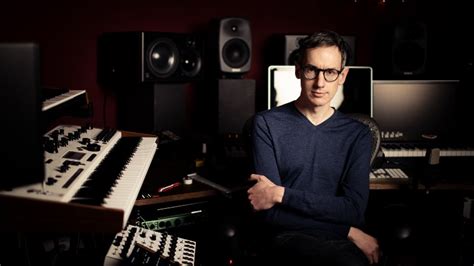Top 27 Quotes & Sayings by Steven Price
Explore popular quotes and sayings by a musician Steven Price.
Last updated on December 22, 2024.
I'm not very good at sounding like other people. When you're going through your 20's and trying to get a break and that kind of thing, and you're trying to do something that sounds like film music, your idea of what it would be, it never really worked out for me and it's only really when I learned to trust the fact that I could only really sound like me.
I've been able to have broad kind of education and all sorts of different music and a lot of kind of films and also different styles and genres. And so, all of these things have influenced me along the way and I take a little bit from everything I do. I've been lucky to work with a lot of great people and learn from them.




















